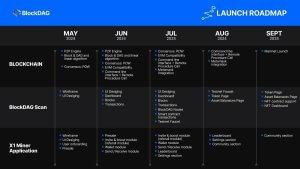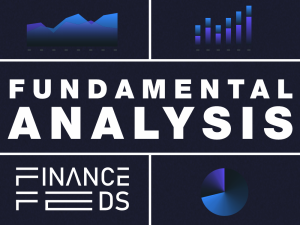NY Court orders Nasdaq to produce data about HFT firms
Nasdaq will have to produce documents relating to the identity of high frequency trading firms trading on the defendants’ exchanges.

A high-frequency trading lawsuit targeting some of the major US stock exchanges, such as BATS Global Markets, Inc., Chicago Stock Exchange, Inc., Direct Edge ECN, LLC, New York Stock Exchange, LLC, NYSE Arca, Inc., Nasdaq OMX BX, Inc., and the Nasdaq Stock Market LLC, continues at the New York Southern District Court. The plaintiffs in this lawsuit are several investment funds which bring claims against the exchanges under Section 10(b) of the Securities Exchange Act of 1934, 15 U.S.C. § 78j(b). In brief, the plaintiffs allege that the Exchanges sold certain services to high-frequency trading (HFT) firms, which then used those services to engage in allegedly manipulative trading schemes at the plaintiffs’ expense.
Let’s recall that, as FinanceFeeds reported back in July 2019, the defendants in this case failed to dismiss the complaint against them.
The latest developments in this case involve arguments about data to be produced. On February 6, 2020, Judge Jesse M. Furman signed an order granting the plaintiffs’ motion to compel Nasdaq to produce certain data concerning HFT firms.
The data the plaintiffs seek from Nasdaq includes:
- (i) documents relating to the identity of HFT firms trading on the defendants’ exchanges; and
- (ii) data or documents related to the defendants’ study, analysis, or assessment of HFT and HFT firms.
The data include, inter alia: (i) data already compiled by NASDAQ and made available to certain third-party academics to analyze and identify HFT trading activity; and (ii) materials concerning the firms NASDAQ identified in the data to be HFT firms.
Several hours after the Judge granted the plaintiffs’ request, the parties in this case filed a Letter with the Court. The Letter, seen by FinanceFeeds, indicates that, despite the Court’s order, the parties are far from agreeing on the production matters.
Nasdaq’s position is that the plaintiffs’ demand that Nasdaq produce the data one day after the Court’s Order, is unreasonable. Nasdaq offers to produce the data “as promptly as is reasonably practicable,” noting that the Order did not require production in one day.
According to the plaintiffs, there should not be any further delay in producing the data and the list of 26 HFT firms the Nasdaq defendants created. And there is no privilege associated with the data or the list of 26 HFT firms. Nasdaq’s statement that it will produce the material ‘as soon as reasonably practical’ is dubbed as too vague by the plaintiffs. They argue that such vagueness provides them with no comfort and further delays their ability to prosecute this Action. Nasdaq’s failure to provide a concrete date for producing this compelled material is unacceptable, as is its attempt now to claim that the timing of such production is now somehow a discovery dispute. Such tactics should be rejected, the plaintiffs argue.









